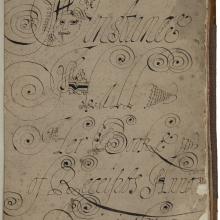By the mid-seventeenth century, London printers and booksellers offered the English reading public a wide array of vernacular medical books. Readers could pick and choose from an assortment of herbals, pharmacopeias, general medical guides, surgical handbooks, midwifery manuals, regimens, and medical recipe books. A few of these works have a long history, having been available in manuscript before the invention of movable-type printing. But the advent of print fostered a boom in in the number and forms of medical works in the vernacular, often addressed to lay readers. These texts were eagerly consulted by householders, who utilized the knowledge contained within not only for their home-based medical activities, but also as a way to inform their decisions as consumers of medical services. This project documents and makes searchable (by title, author, subject, and other categories) all pre-1700 medical books published in English. The database contains entries for almost 3000 titles, 1500 persons (authors, publishers, and booksellers) and 500 sites (printing houses and bookshops).
First conceived as a research project to analyze medical print in early modern England, Vernacular Medical Books has blossomed into a project that is both pedagogical and research-driven. Working with a close-knit group of professors at a diverse array of colleges and universities, the group is designing the database to introduce students to early modern medicine, and to techniques of digital history, such as text mining and network analysis. At the same time, the database is a rich resource for researching a wide range of topics in early modern health and healing. As the project matures, additional content (links to the Early Modern Map of London, short articles on particular books, historical actors, and places) will be crowdsourced via student assignments.



